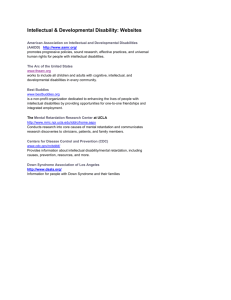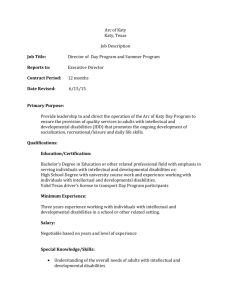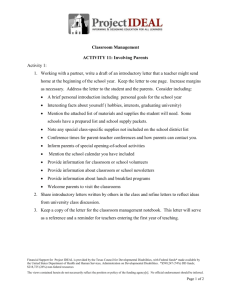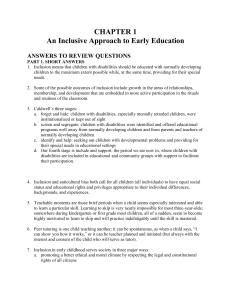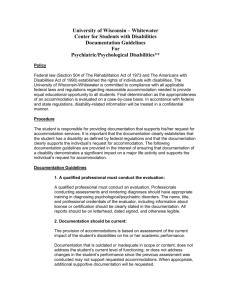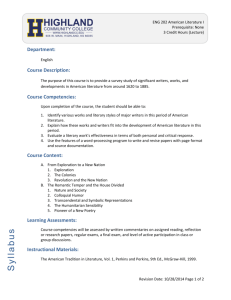Fact Sheet Series - Job Accommodation Network
advertisement
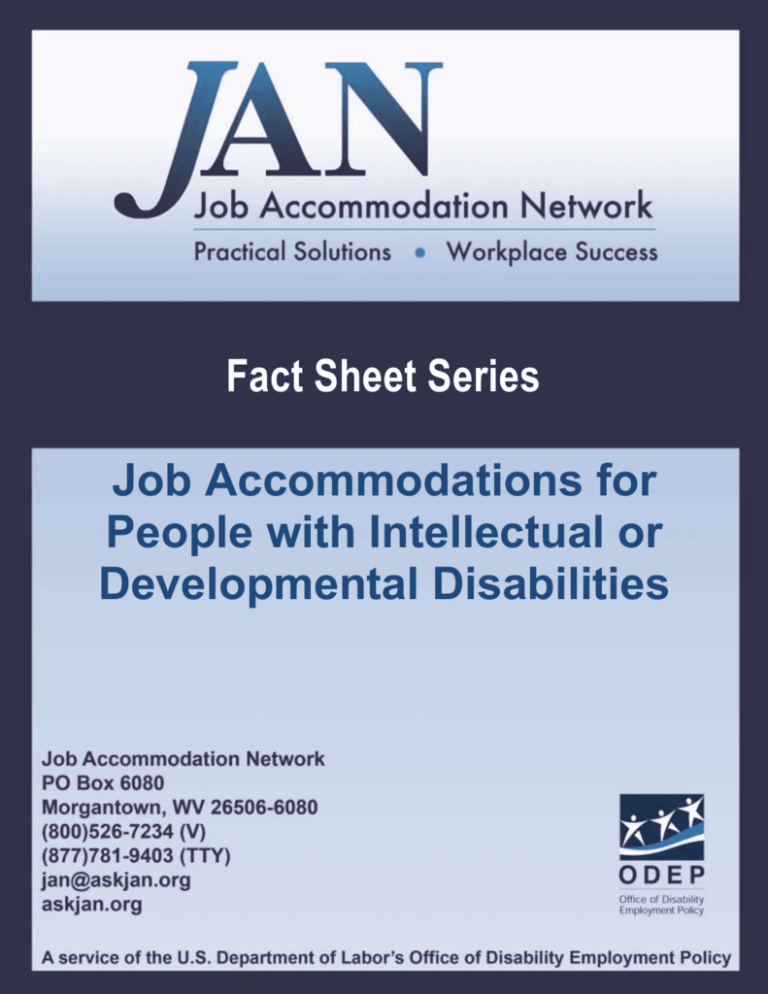
Fact Sheet Series Job Accommodations for People with Intellectual or Developmental Disabilities JAN’S ACCOMMODATION FACT SHEET SERIES JOB ACCOMMODATIONS FOR PEOPLE WITH INTELLECTUAL OR DEVELOPMENTAL DISABILITIES People with intellectual or developmental disabilities may experience limitations in cognitive abilities, motor abilities, and social abilities that can affect workplace performance. The degree of limitation will vary from individual to individual, and therefore, the accommodation provided will also vary. The following is a quick overview of some of the job accommodations that might be useful for employees who experience intellectual or developmental disabilities. For a more in depth discussion, access JAN's publications at http://askjan.org/media/atoz.htm. To discuss an accommodation situation with a consultant, contact JAN directly. Cognitive Limitations: Reading Provide pictures, symbols, or diagrams instead of words Read written information to employee or provide written information on audiotape Use voice output on computer Use Reading Pen on single words Use line guide to identify or hi-light one line of text at a time Writing Provide templates or forms to prompt information requested Allow verbal response instead of written response Allow typed response instead of written response Use voice input and spell-check on computer Use a scribe to write the employee's response Provide ample space on forms requiring written response Use voice activated recorder to record verbal instructions Calculations Allow use of large-display or talking calculator and use counter or ticker Make pre-counted or pre-measured poster or jig Provide talking tape measure and liquid level indicators Mark the measuring cup with a "fill to here" line Organization: Minimize clutter and color-code items or resources Provide A-B-C and 1-2-3 chart Divide large tasks into multiple smaller tasks Use symbols instead of words and use print labels instead of hand-written labels 2 Time Management: Provide verbal prompts (reminders) Provide written or symbolic reminders Use alarm watch or beeper Use jig for assembly to increase productivity Arrange materials in order of use Use task list with numbers or symbols Avoid isolated workstations Provide space for job coach Provide additional training or retraining as needed Gross and Fine Motor Limitations: Computer Use Use keyguard Use alternative input devices such as speech recognition, trackball, and joystick Telephone Use Use large-button phone Use phone with universal symbols (fire, police, doctor) Use phone with speed-dial, clearly labeled Use receiver holder and/or headset Workstation Use Place anti-fatigue mats at workstation Use motorized scooter Use stools at workstations Move items within reach Provide frequent rest breaks Tool Use Use ergonomic tools, handle build-ups, or other tool adaptations Use orthopedic writing aids Use grip aids Use jig or brace Social Interaction: Implement a structure of positive feedback Use visual performance charts Provide tangible rewards Use co-workers as mentors and provide sensitivity training (disability awareness) to all employees Use Employee Assistance Program (EAP) Provide job coach and use training videos to demonstrate appropriate behavior Model appropriate social skills such as where to eat, when to hug, how to pay for coffee, and how to ask for help 3 Resources Specifically for People with Intellectual or other Developmental Disabilities President's Committee for People with Intellectual Disabilities Administration for Children and Families Aerospace Center, Suite 701 370 L’Enfant Promenade, SW Washington, DC 20447 Direct: (202)619-0634 Fax: (202)205-9519 satwater@acf.hhs.gov http://www.acf.hhs.gov/programs/pcpid ARC of the United States 1660 L Street, NW, Suite 301 Washington, DC 20036 Toll Free: (800)433-5255 Direct: (202) 534-3700 info@thearc.org http://thearc.org American Association for Intellectual and Developmental Disabilities 444 North Capitol Street, NW, Suite 846 Washington, DC 20001-1512 Toll Free: (800)424-3688 Direct: (202)387-1968 Fax: (202)387-2193 http://www.aaidd.org Association for Persons in Supported Employment 1627 Monument Avenue Richmond, VA 23220 Direct: (804)278-9187 Fax: (804)278-9377 apse@apse.org http://www.apse.org National Association of Councils on Developmental Disabilities 1660 L Street, NW, Suite 700 Washington, DC 20036 Direct: (202)506-5813 Fax: (202)506-5846 info@nacdd.org http://www.nacdd.org/ Updated 4/08/11. 4 This document was developed by the Job Accommodation Network, funded by a contract agreement from the U.S. Department of Labor, Office of Disability Employment Policy (DOL079RP20426). The opinions expressed herein do not necessarily reflect the position or policy of the U.S. Department of Labor. Nor does mention of trade names, commercial products, or organizations imply endorsement by the U.S. Department of Labor. 5

